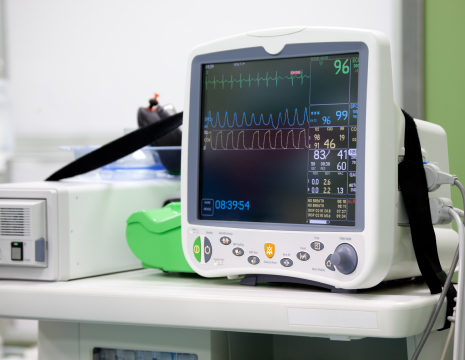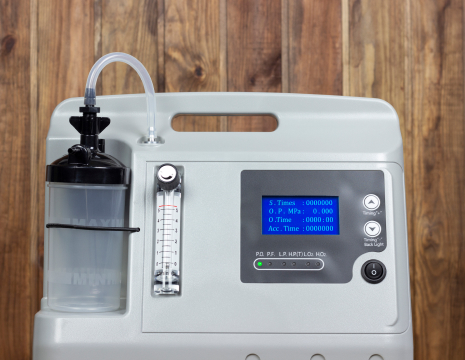Regularly scheduled Preventive Maintenance (PM) service is one of the primary ways of ensuring that your medical equipment consistently operates at peak performance.
Several measurable benefits are realized through a comprehensive Preventative Maintenance program.
- Reduced likelihood of equipment failure
- Reduced likelihood of costly emergency repairs
- Extended equipment lifecycle
- Continuous Patient Care
- Reduced Patient Risk
- Reduced Cost of Ownership
- Minimize reactive repairs
- Minimize equipment rentals
- Avoid early equipment replacement
This reality drives our philosophy that a proactive Preventative Maintenance program better serves our customers, their shareholders, assets and patients over a cursory periodic inspection often followed by reactive repairs. We work closely with our customers to develop a preventative maintenance plan that works best for their needs.
As part of our preventive maintenance services, our trained and certified technicians thoroughly inspect, analyze and evaluate all aspects of the device. We focus on measured data, component wear and system evaluation, identify weaknesses and anticipate potential failure points. Manufacturer guidelines are followed to ensure the device is serviced properly and that it operates within specification. We take great pride in our work, pay attention to details and deliver high quality service, thereby extending the life of your equipment.
Our core maintenance services includes; Performance Testing and Asset Tagging, Electrical Testing, Mechanical Testing, System Maintenance and Regulatory Compliance
Performance Testing and Asset Tagging
Running general inspections and safety tests is a critical first step in identifying potential problems, implementing remedial measures, and ensuring patient safety. Performance testing verifies that the equipment is operating according to manufacturer specifications and all supported features are in good working order.
Our dedicated technicians take pride in delivering a finished product that is not only in excellent working condition, but also has a renewed appearance. To this end, we thoroughly clean and disinfect your biomedical equipment making it patient ready.
Each device is then tagged with a durable, medical-grade label that can withstand disinfecting cleansers and the harsh medical environment. Each tag is unique to its specific asset and contains identifier information along with service history. Asset tagging enables us to identify each unit individually and track data associated with its maintenance history. The tag also features a QR code that our customers can easily scan using a phone camera to create a work-order that automatically alerts our team.


Electrical Testing
Performing electrical inspections on biomedical equipment allows our technicians to evaluate the condition of the electrical system, run power supply checks, identify worn or defective components and detect potential problems. Addressing these concerns early plays an important role in minimizing power-related disruptions.
Electrical safety testing serves to minimize hazard and protect the safety of operators and patients by preventing instances of electric shocks or other electrical injury. An integral part of preventive maintenance, it involves adhering to standards set by the International Organization for Standardization (ISO), the International Electrotechnical Commission (IEC), and the National Fire Protection Association (NFPA). Our electrical safety testing ensures that your equipment is operating within the proper safety guidelines.
Battery-powered devices are tested regularly to make sure the battery is in good working condition. Batteries are inspected for leaks, corrosion and charge capacity. Defective or aged batteries will be replaced as needed.
Mechanical Testing
Mechanical inspections allow our technicians to evaluate the condition of the mechanical systems, assemblies and linkages. Our wear-and-tear analysis identifies worn or defective components and provides valuable insight into when parts might need replacement. Oftentimes, our mechanical tests result in quick and effective solutions like calibration, lubrication, and adjustments.
Mechanical safety testing is crucial to ensure that all biomedical equipment meets the requirements of regulating bodies and manufacturer. Detecting potential problems early reduces risk of injury to operator and patient.
System Maintenance
System maintenance is a process through which our trained technicians evaluate aspects of the equipment that are not necessarily covered by the other inspections. This includes system level or transducer calibration, updates to software or firmware, environmental testing or component replacement.
Regulatory Compliance
Many state and federal regulatory bodies such as the FDA, or Department of Health require annual inspections of medical equipment that come in contact with patients in order to prevent injury or misdiagnosis. These agencies set precise standards for compliance. We conduct the required annual safety testing on all your equipment, ensuring that it complies with required standards and passes any compliance audit. A detailed inspection and test report is provided for record keeping.
Performance Testing and Asset Tagging
Running general inspections and safety tests is a critical first step in identifying potential problems, implementing remedial measures, and ensuring patient safety. Performance testing verifies that the equipment is operating according to manufacturer specifications and all supported features are in good working order.
Our dedicated technicians take pride in delivering a finished product that is not only in excellent working condition, but also has a renewed appearance. To this end, we thoroughly clean and disinfect your biomedical equipment making it patient ready.
Each device is then tagged with a durable, medical-grade label that can withstand disinfecting cleansers and the harsh medical environment. Each tag is unique to its specific asset and contains identifier information along with service history. Asset tagging enables us to identify each unit individually and track data associated with its maintenance history. The tag also features a QR code that our customers can easily scan using a phone camera to create a work-order that automatically alerts our team.


Electrical Testing
Performing electrical inspections on biomedical equipment allows our technicians to evaluate the condition of the electrical system, run power supply checks, identify worn or defective components and detect potential problems. Addressing these concerns early plays an important role in minimizing power-related disruptions.
Electrical safety testing serves to minimize hazard and protect the safety of operators and patients by preventing instances of electric shocks or other electrical injury. An integral part of preventive maintenance, it involves adhering to standards set by the International Organization for Standardization (ISO), the International Electrotechnical Commission (IEC), and the National Fire Protection Association (NFPA). Our electrical safety testing ensures that your equipment is operating within the proper safety guidelines.
Battery-powered devices are tested regularly to make sure the battery is in good working condition. Batteries are inspected for leaks, corrosion and charge capacity. Defective or aged batteries will be replaced as needed.
Mechanical Testing
Mechanical inspections allow our technicians to evaluate the condition of the mechanical systems, assemblies and linkages. Our wear-and-tear analysis identifies worn or defective components and provides valuable insight into when parts might need replacement. Oftentimes, our mechanical tests result in quick and effective solutions like calibration, lubrication, and adjustments.
Mechanical safety testing is crucial to ensure that all biomedical equipment meets the requirements of regulating bodies and manufacturer. Detecting potential problems early reduces risk of injury to operator and patient.
System Maintenance
System maintenance is a process through which our trained technicians evaluate aspects of the equipment that are not necessarily covered by the other inspections. This includes system level or transducer calibration, updates to software or firmware, environmental testing or component replacement.
Regulatory Compliance
Many state and federal regulatory bodies such as the FDA, or Department of Health require annual inspections of medical equipment that come in contact with patients in order to prevent injury or misdiagnosis. These agencies set precise standards for compliance. We conduct the required annual safety testing on all your equipment, ensuring that it complies with required standards and passes any compliance audit. A detailed inspection and test report is provided for record keeping.


